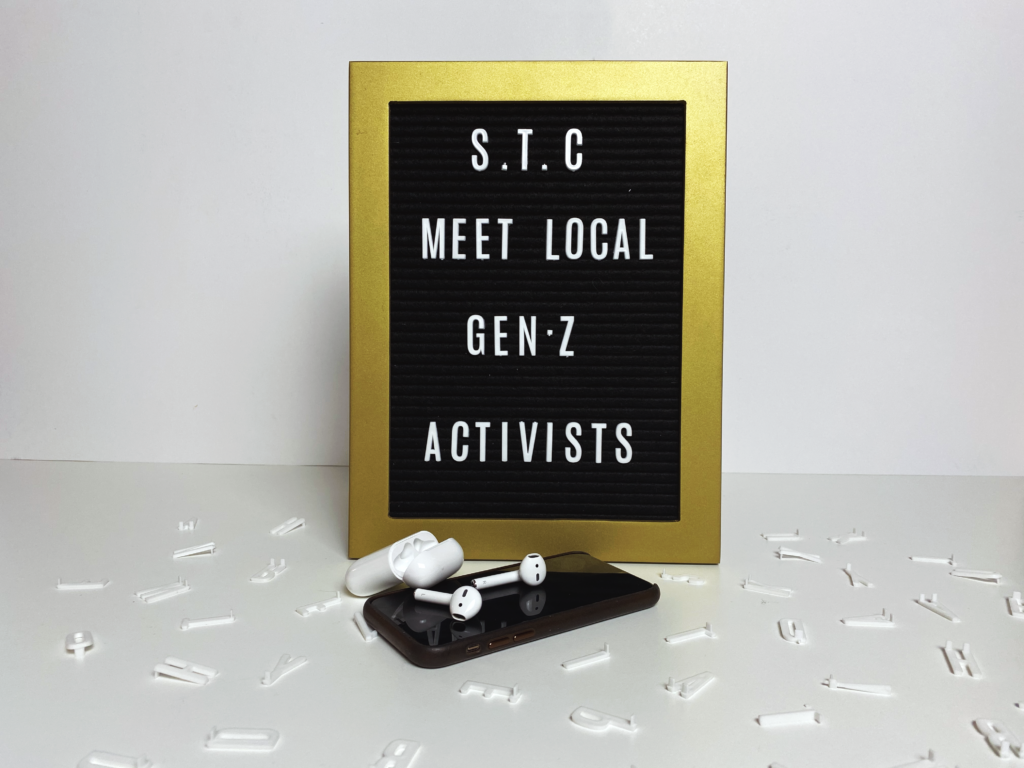Meet local Gen-Z activists who are fighting for change.
By Kasee Bailey
Forty-three percent of Texans are under the age of 30 and soon, young people will make up a third of eligible voters in Texas. Despite these noteworthy numbers, younger generations have often been shut out of the conversations where important decisions are made and policy is enacted.
“It is one of the most frustrating narratives that we see that young people are apathetic about voting,” says Charlie Bonner, communications director at MOVE Texas. “We don’t have an issue of apathy. We have an issue of access. We have not given young people the tools they need to be involved in civic life.”
MOVE Texas is just one of many Texas organizations working to change this issue, empowering young people through youth-led movements with the training, tools and resources they need to develop politically active lives.
“What we really need is a massive cultural shift around civic life,” Bonner says.
Over the past several years, young adults have been on a mission to make their often-overlooked voices heard. From 2014 to 2018, youth voter turnout tripled in Texas, making it a battleground state in politics.
“We need candidates to show up for young people,” Bonner says. “We have proven that we have an electoral power, and now it’s time for candidates to start making that investment.”
Far from being apathetic, young people in Texas are manifesting their passion for pertinent issues by engaging in self-generated activism, working to raise their voices on relevant issues and create a governing body that more closely reflects its electorate.
“I think that young people are extremely motivated on their own,” says Sydney Greene, digital coordinator of Austin- based nonprofit Deeds Not Words. “I think part of that has to do with the climate that we live in. I think it’s very hard for young people right now to just sit back and not do anything. Right now, their future is at stake. And they start to see how time and time again decisions have been for them and about them without them having a seat at the table. I definitely think that motivates them to want to participate in the political process, specifically in advocacy.”
Twenty-year-old Krissia Palomo, a college student and precinct chair for the Tarrant County Democratic Party, initially avoided engaging in activism after a high-school government teacher shut down her interest in politics. Witnessing rampant Beto stickers during the 2018 elections inspired her to get involved again.
“I realized I couldn’t sit on the sidelines anymore,” Palomo says. “It gave me a sense of urgency. Young people need to have a seat at the table, because a lot of the issues we’re fighting for right now, like climate change legislation, all of that is going to affect us in the long run.”
And it’s not just talk. Young people across the country are effecting real change through their political advocacy.
Youth-led Deeds Not Words is equipping young people with necessary skills and tools while also enacting change at the legislative level. Its powered-by- Gen-Z agenda helped pass 18 bills into law in the 208 Texas legislative session, with young people testifying more than 80 times on 30 bills.
“As older generations are seeing that we’re putting in the work, they’re taking us a lot more seriously,” Greene says.
Gen Zers aren’t stopping at capitol canvassing; they’re connecting political advocacy to their passions in their own individual communities. Teen sisters and bandmates Tori, Sophia and Tiffany Baltierra, known as The Tiarra Girls, use music to spread their message of empowerment and activism.
“We started seeing the political atmosphere and wanted to use [our]platform for something that was bigger than ourselves,” Tiffany Baltierra says. “All we saw were adults talking about it to people our age, and we weren’t taking it seriously because it wasn’t coming from someone in our point of view. We knew that speaking our voice would get people to pay more attention and take action.”
With the mission to pay attention and take action, Gen Zers are leading the country by example.
“Young people’s needs aren’t being represented well, but their voices are really important,” says Rae Martinez, director at Texas Rising. “They are going to be our current and future leaders.”
HOW TO START THE CONVO
Do your research and vote. Voting for the first time is often young people’s entry point into political activism, Rae Martinez says. Voting is a crucial step for seeing your needs reflected in legislation. “I think it’s really important that we see candidates that look like us,” Krissia Palomo says.
Consume news. The news can feel overwhelming but if staying informed makes you mad, that’s good, Charlie Bonner says. This emotion will motivate you to make changes. With that passion, you can connect with local organizations that address issues important to you.
Talk to your friends. Look around for issues affecting your unique environment, like your school or university. How are these issues affecting your friends? Join with them and talk about what you could do to enact important change. “People will listen to you in numbers,” Sydney Greene says.
Get social. “Gen Z has access to a wealth of information,” Greene says. Get active on social media to take advantage of the rich resources offered to young people. Whether that’s info on latest news, political happenings or what advocacy resources are near you, social media can be a great tool for activism. And try not to worry if you don’t understand everything right away. “Keep educating yourself,” Tori Baltierra says. “Keep learning because, in the long run, no one can take that from you.”


